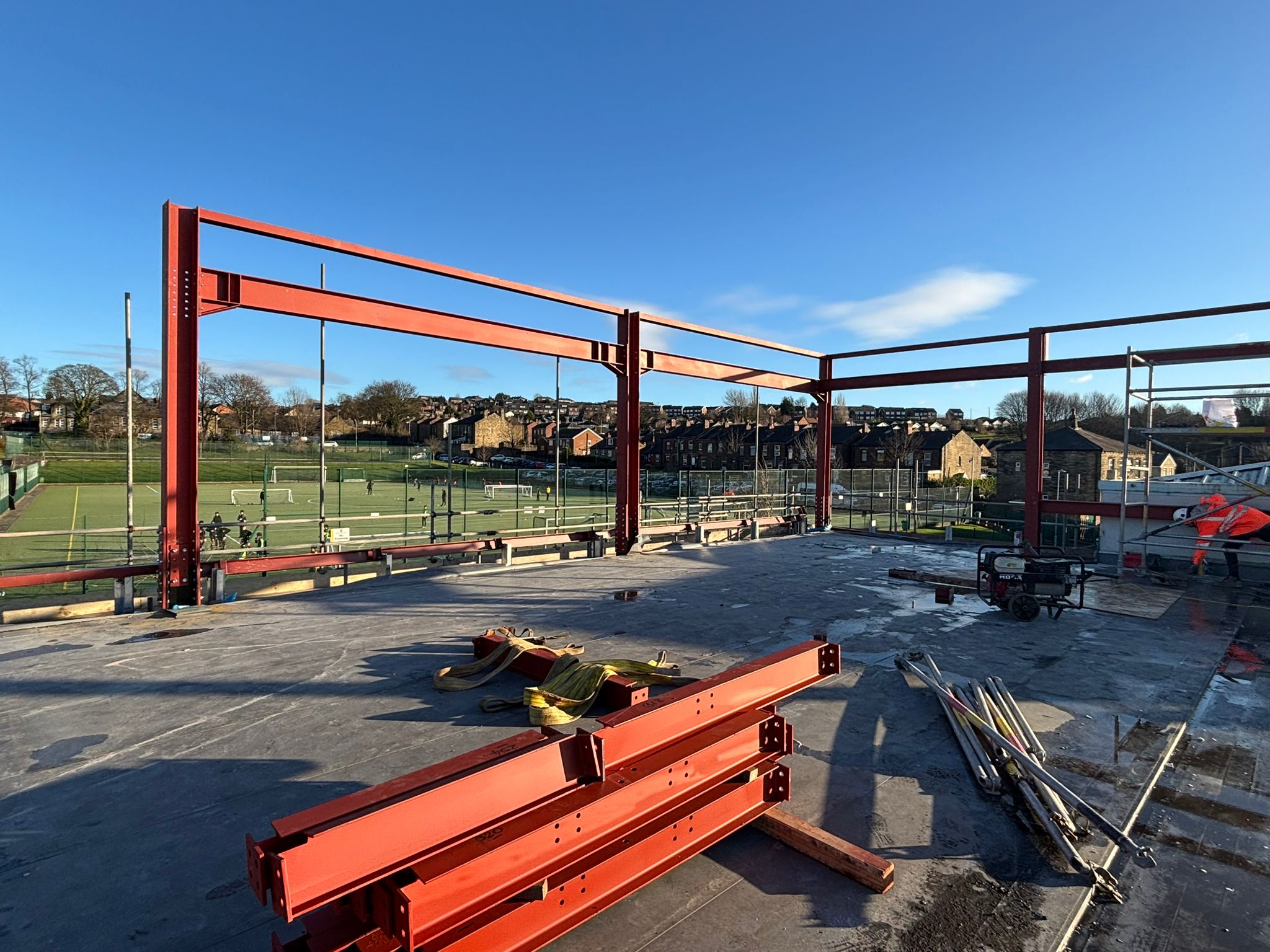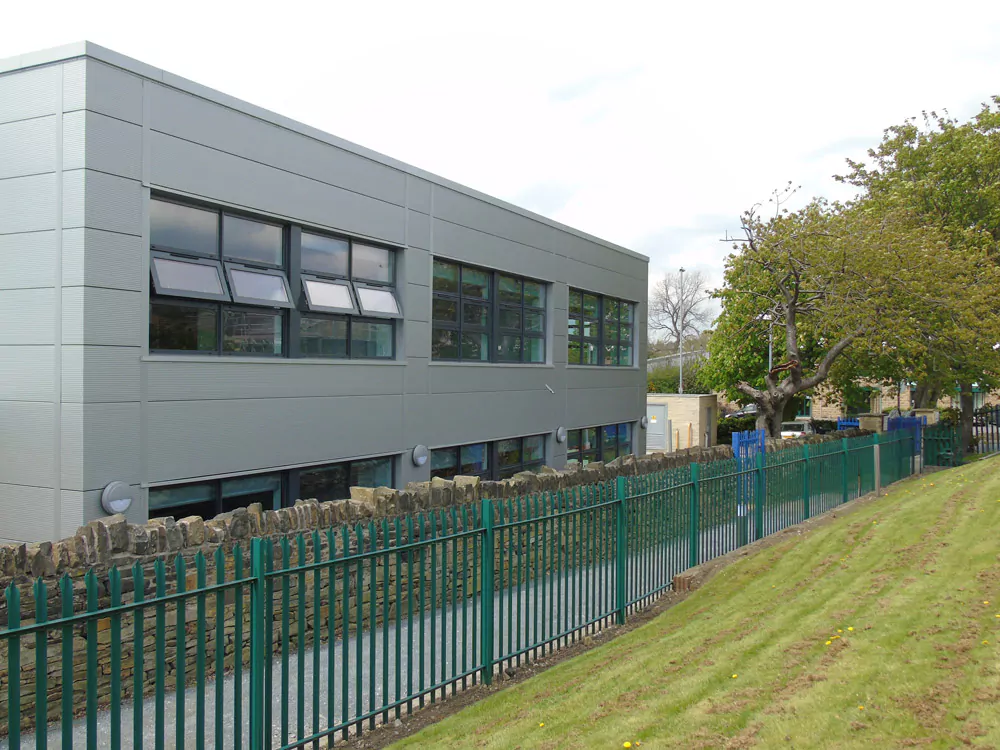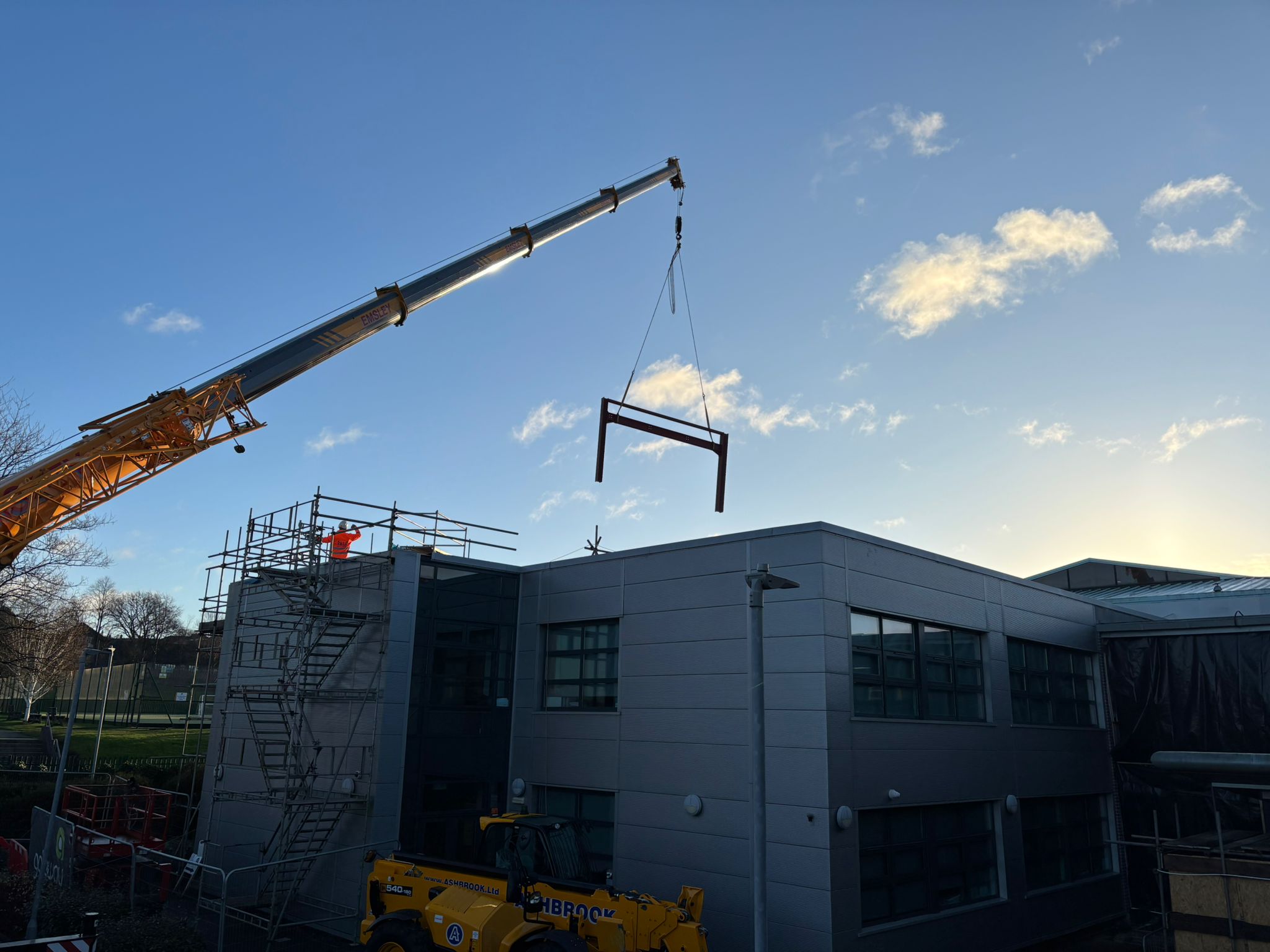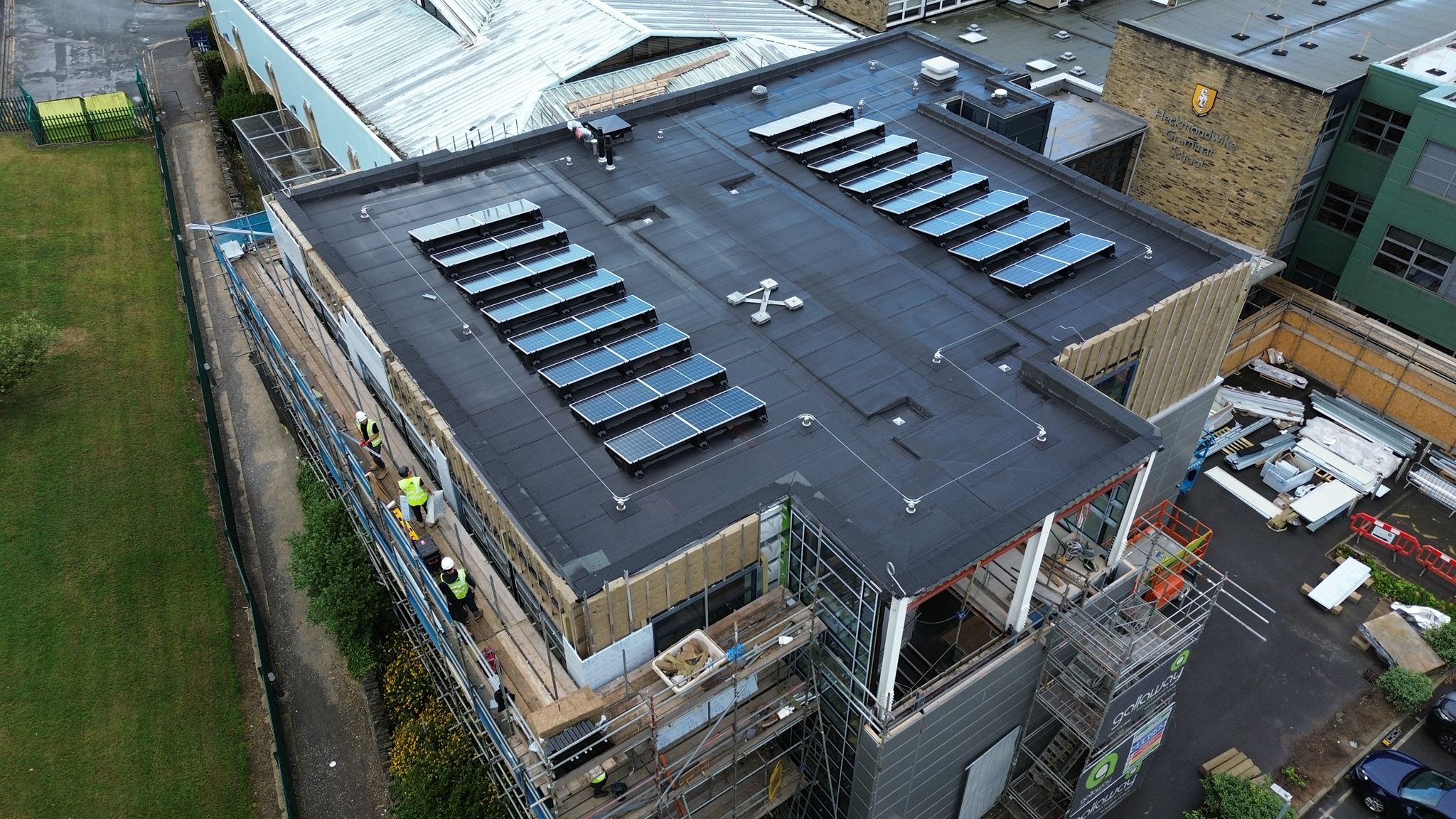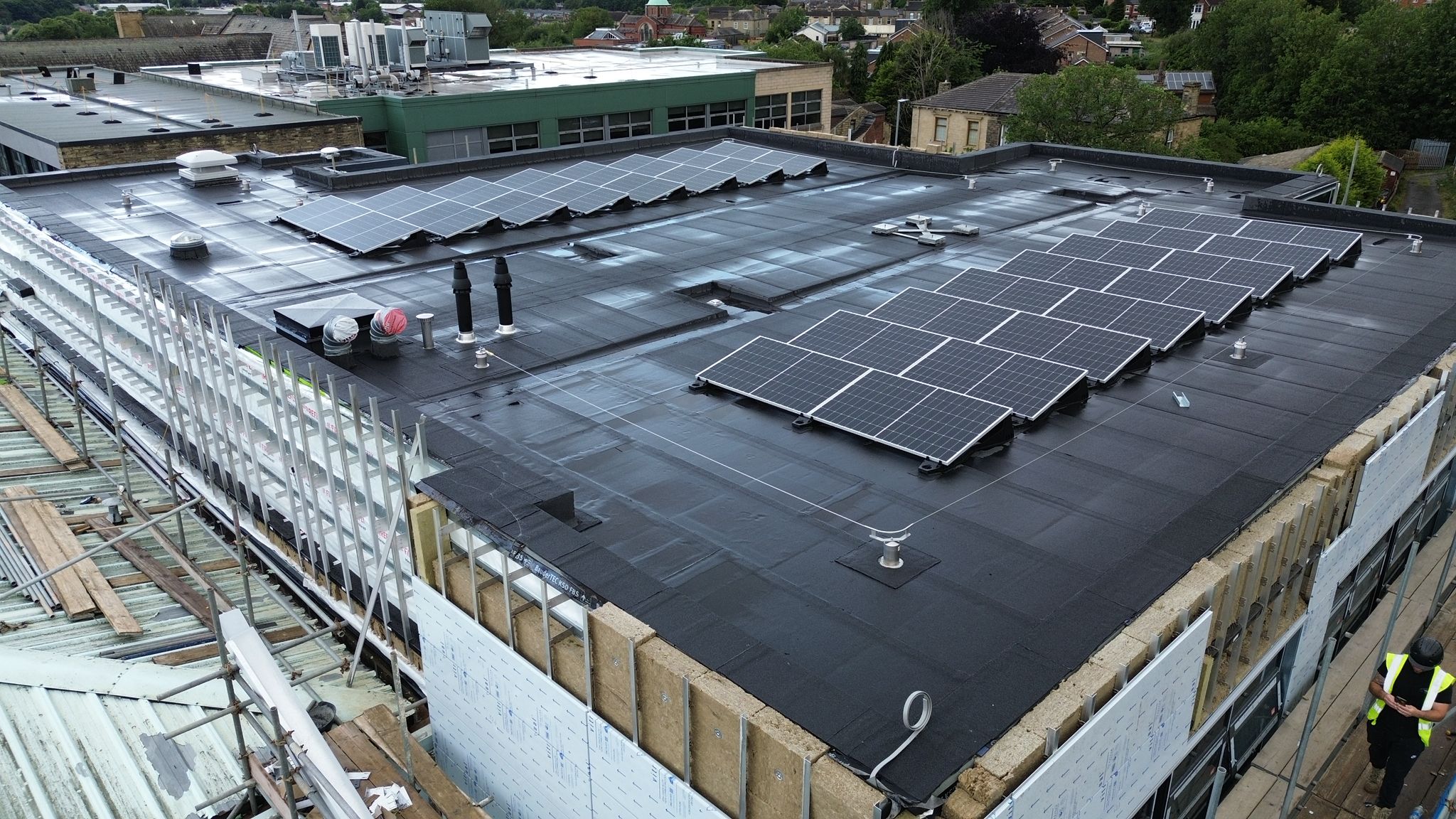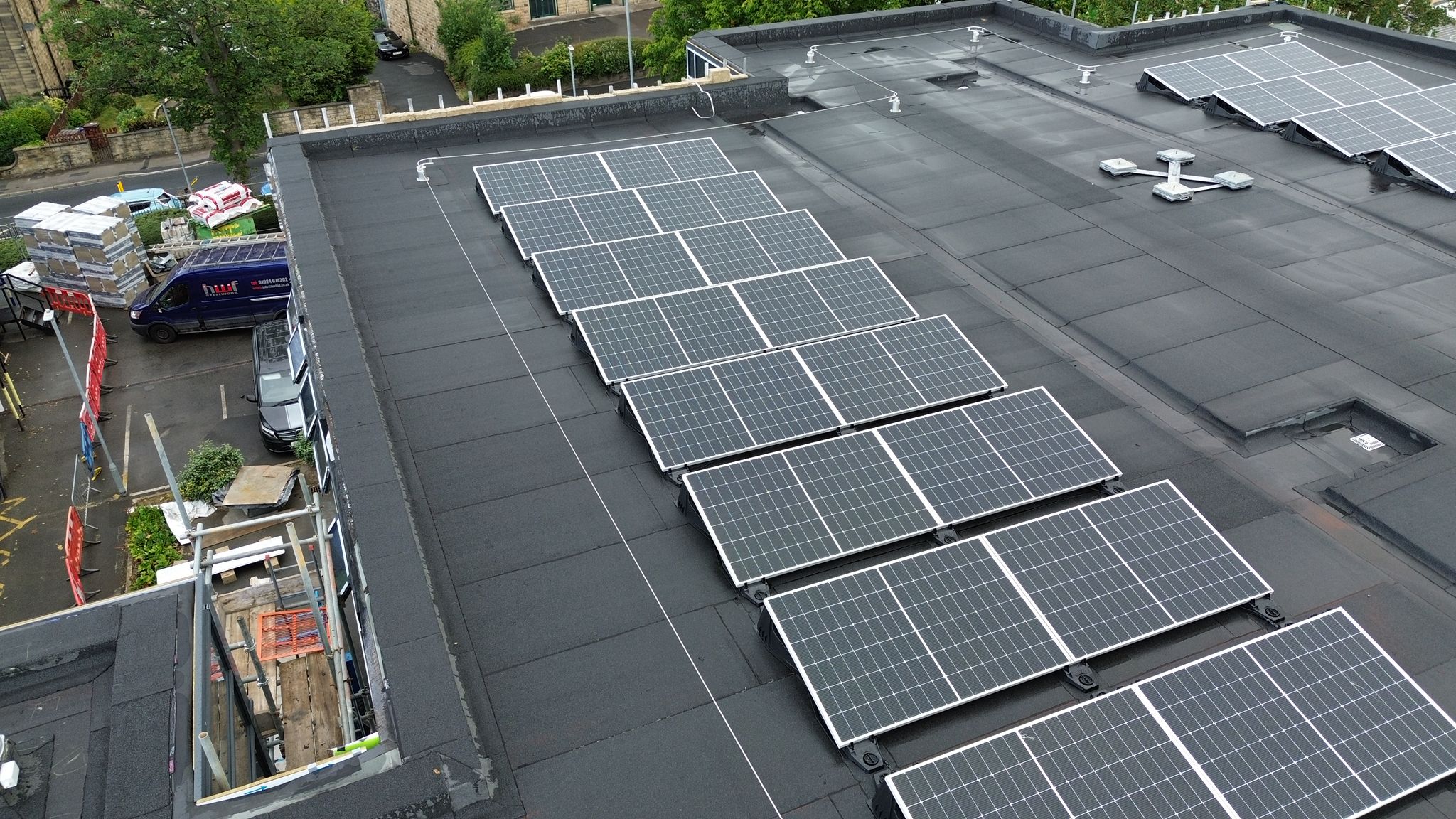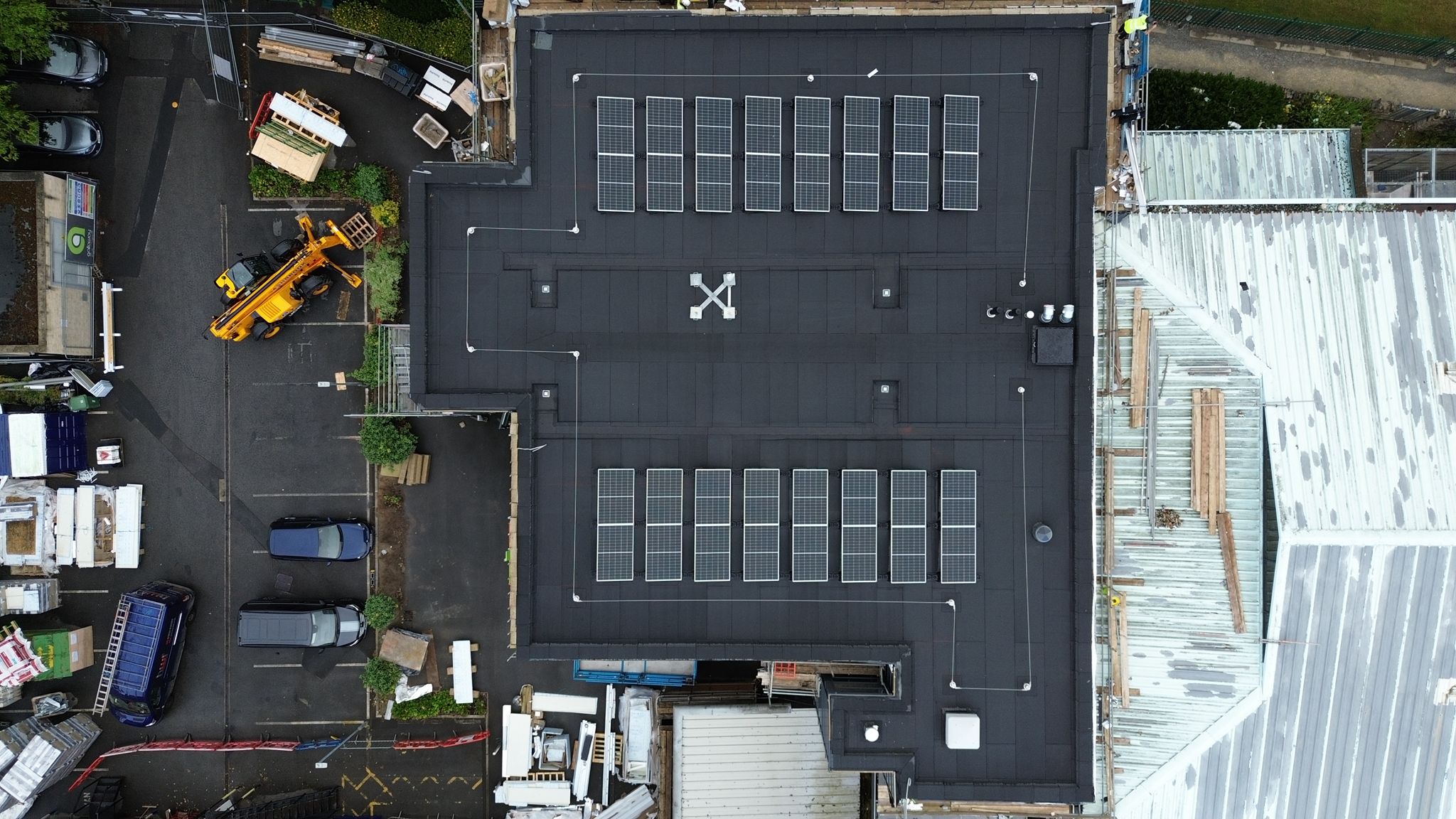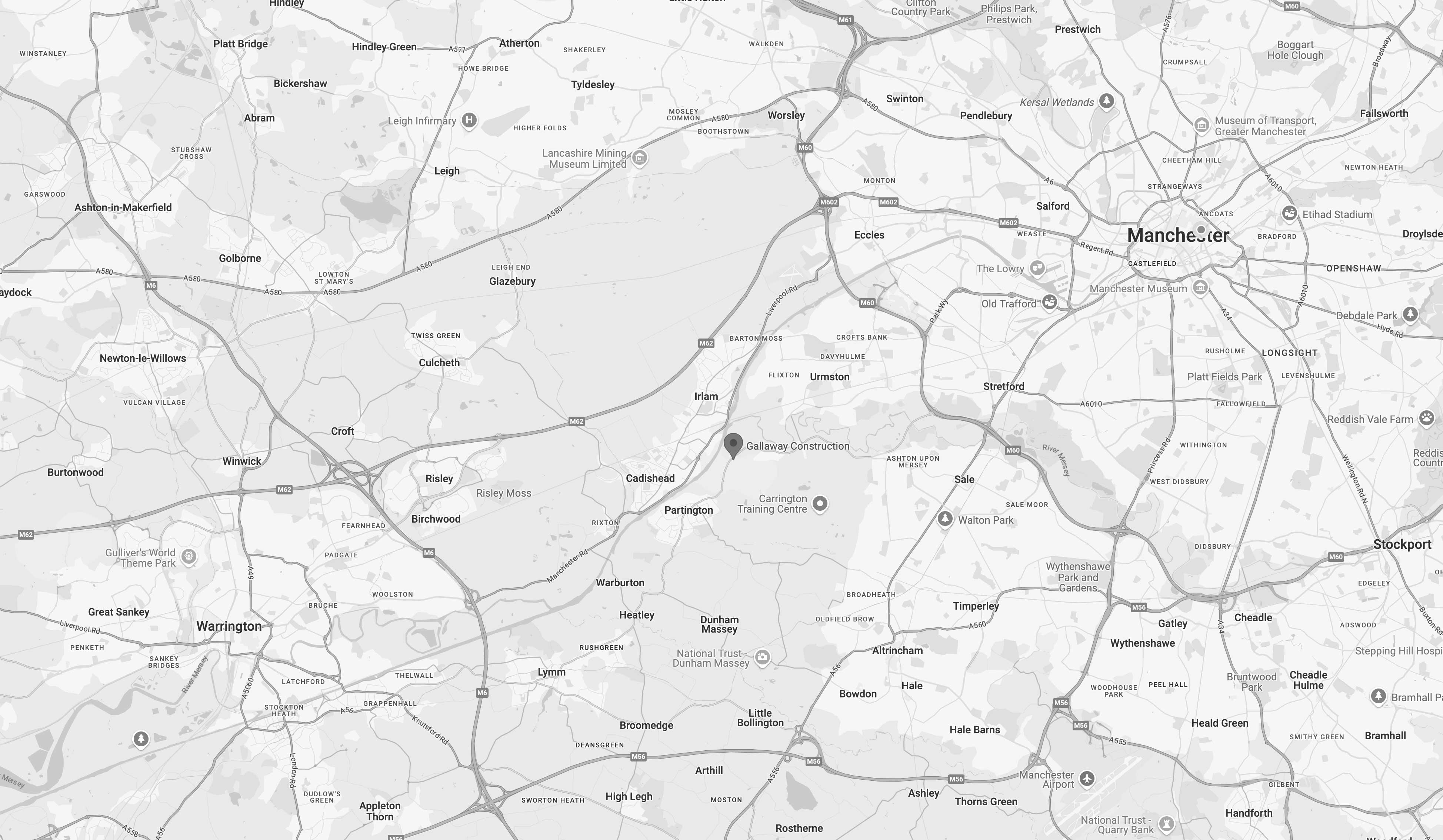We delivered a 415m² second-storey extension that met every objective while navigating the sensitive challenges of building within a live school environment. Designed for longevity and sustainability, the extension created high-specification classrooms, accessible WCs, and a new plant room - all fully integrated into the existing Powell Building.
To maintain full accessibility, a new full-height lift shaft was installed, connecting all floors of the building and ensuring compliance with DfE guidelines. The internal layout was carefully planned to deliver modern, adaptable teaching spaces while structural remodelling and refurbishment of adjacent areas supported seamless integration with the existing school layout.
Construction was phased with precision: the new extension was completed first, allowing for the safe removal of temporary classrooms without interrupting school operations. Hard play areas were then reinstated, returning valuable outdoor space to the school community.
Our use of Procore construction management software played a critical role in delivering the project smoothly. The platform enabled real-time collaboration between the client, design team, and consultants, allowing all stakeholders to stay aligned. It also streamlined quality assurance, provided instant visibility of project documentation, and ensured traceability of RFIs, revisions, and audit trails. This digital delivery approach helped reduce risk, enhance transparency, and support faster, more confident decision-making throughout the build.
Sustainability remained a core driver from start to finish. The extension was built using a high-performance through-wall system to minimise heating demand, with low-carbon materials and logistics solutions chosen to reduce overall environmental impact. Every design element supported long-term adaptability and lower operational carbon, aligning fully with Net Zero in Operation targets.
A rigorous health and safety regime was maintained at all times. Daily briefings, weekly toolbox talks, monthly HSEQ audits, and strict visitor protocols ensured the site remained safe and secure, resulting in zero reportable incidents across the project’s duration.
Beyond the physical build, our social value programme left a meaningful and measurable legacy. Ninety students participated in interactive STEM sessions focused on construction careers and sustainable design. Dedicated talks around neurodiversity highlighted inclusivity within the industry, and three students completed on-site work experience placements. Key Stage 4 and 5 students were given guided site tours to observe Net Zero principles in action, and birdboxes made from excess materials were donated to the school to reinforce environmental awareness.
The entire project was delivered on time and within budget, providing the school with a high-performance, inclusive learning environment that meets the evolving needs of both staff and students. It achieved every goal set by the client, creating lasting educational, environmental, and community impact.



